Trump says China can buy Iranian oil, signalling policy shift

President Trump’s campaign of maximum pressure on Iran took an unexpected turn on Tuesday when he announced on social media that China can now buy Iranian oil.

President Trump’s campaign of maximum pressure on Iran took an unexpected turn on Tuesday when he announced on social media that China can now buy Iranian oil.
“China can now continue to purchase Oil from Iran,” Trump wrote on Truth Social, “Hopefully, they will be purchasing plenty from the US, also. It was my Great Honor to make this happen!”
In May, Trump had threatened to bar any country that bought Iranian oil from doing business with the United States.
China remains the dominant buyer of Iranian crude, accounting for the bulk of the country’s 1.7 million barrels per day in exports, according to data from Kpler, data and analytics firm that tracks global commodity flows.
Trump’s announcement comes after nearly two weeks of fighting between Iran and Israel, which began with Israeli airstrikes on Tehran on June 13. A ceasefire agreement was reached Monday evening, following US airstrikes on three Iranian nuclear sites over the weekend. The US said its objectives had been met.
Speaking to reporters aboard Air Force One, Trump said Iran “is not going to have enrichment and they're not going to have a nuclear weapon,” adding, “They're going to get on to being a great trading nation.”
Oil prices have now tumbled to levels last seen before the Israeli strikes began, as investor fears of a major supply disruption in the Middle East ease.
Initial concerns had surged after the US joined Israel’s campaign, prompting speculation that Iran might retaliate by targeting oil flows from the Persian Gulf.
Traders were particularly watching whether Tehran would attempt to close the Strait of Hormuz — the narrow waterway linking the Persian Gulf and the Gulf of Oman — through which 20% of the world’s crude flows.
It remains a critical artery for oil exports from Iran, Saudi Arabia, the UAE, Iraq, Kuwait, and Bahrain.
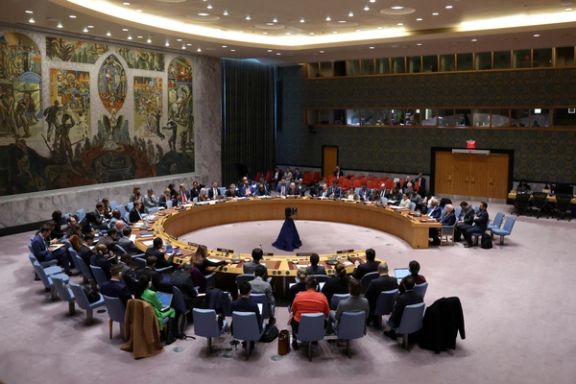
UN Secretary-General António Guterres has warned of the profoundly alarming risk of further military escalation between Iran and Israel, as the Security Council prepares to meet on Tuesday to review the implementation of the 2015 Iran nuclear deal under Resolution 2231.
According to an advance copy of the Secretary-General’s 19th report, obtained by Iran International from a Security Council member ahead of its official release, Guterres condemned the Israeli strikes on Iranian territory — including on nuclear-related sites — and Iran’s retaliatory attacks.
“I am profoundly alarmed by the ongoing military escalation,” Guterres writes in his report on the implementation of Security Council Resolution 2231 (2015).
He urged both sides to exercise “maximum restraint” and avoid a “descent into deeper conflict.”
“Diplomacy remains the best and only way to address concerns regarding Iran’s nuclear program and regional security issues,” the report added.
A fragile ceasefire brokered by US President Donald Trump — and confirmed by both Tehran and Jerusalem — is currently in effect. However, in the early hours after the ceasefire took effect on Tuesday morning, both sides accused each other of breaches.
Guterres repeated his call for immediate de-escalation and a return to diplomacy. “The only path to peace and prosperity is through a diplomatic solution that ensures the exclusively peaceful nature of Iran’s nuclear program,” the report says.
The meeting on Tuesday will feature briefings by Under-Secretary-General for Political Affairs Rosemary DiCarlo, Slovenia’s Ambassador Samuel Žbogar — the current Security Council facilitator for Resolution 2231 — and a European Union representative in their capacity as JCPOA coordinator.
Goals of nuclear deal yet unmet
The report said that the core goals of the Joint Comprehensive Plan of Action (JCPOA) remain unrealized, even as the resolution’s provisions are set to expire in October. “The objectives of the resolution and those of the Plan have yet to be fully realized.”
The secretary-general expressed support for recent diplomatic efforts between Iran and the US, which have included five rounds of indirect talks mediated by Oman.
In a March joint statement shared with Guterres, China, Iran, and Russia stressed the importance of preserving Resolution 2231’s framework and warned against actions that could escalate tensions.
Beijing later submitted a five-point proposal advocating for a step-by-step diplomatic resolution and reaffirming the JCPOA as a viable path forward.
However, Western governments remain skeptical. France, Germany, and the UK told the Council earlier in June that Iran is in “extensive violation” of its JCPOA obligations and is producing enriched uranium at levels far beyond the deal’s limits.
The trio warned they may trigger the so-called snapback of UN sanctions if no progress is made.
Iran rejected the accusations, blaming the US withdrawal from the deal in 2018 and subsequent European inaction for the current crisis. Tehran warned that any move to reimpose sanctions could prompt its withdrawal from the Non-Proliferation Treaty (NPT).
Russia also backed Iran’s position, accusing Western nations of violating the agreement and dismissing efforts to paint Iran’s nuclear program as a threat to international peace.
IAEA raises alarm
A recent report by the International Atomic Energy Agency (IAEA) estimates Iran’s enriched uranium stockpile at over 9,200 kilograms — more than 45 times the JCPOA’s cap — with significant quantities enriched up to 60%, a level close to weapons-grade.
The IAEA warned it had lost continuity of knowledge over much of Iran’s nuclear activities since early 2021, raising further concerns about transparency and oversight.
The UN nuclear watchdog confirmed that it continues to oversee procurement notifications under the resolution. Eight new nuclear-related notifications were received since December 2024, according to the report.
Slovenia’s Žbogar is expected to present a separate report to the Council outlining these developments, while the EU representative will provide an update on the status of the JCPOA’s implementation.
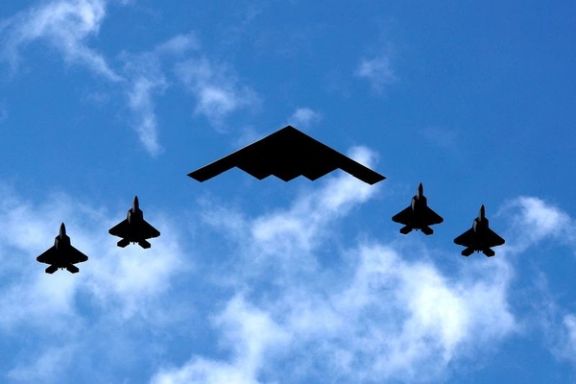
Tehran declared it had agreed to a ceasefire twelve days after Israel launched a relentless military campaign against Iran, damaging key nuclear and military sites and killing hundreds of civilians.
Tehran declared it had agreed to a ceasefire twelve days after Israel launched a relentless military campaign against Iran, damaging key nuclear and military sites and killing hundreds of civilians.
“On the assumption that everything works as it should, which it will, I would like to congratulate both countries, Israel and Iran, on having the stamina, courage, and intelligence to end what should be called ‘THE 12 DAY WAR,’” President Donald Trump wrote on Truth Social.
“It has been fully agreed by and between Israel and Iran that there will be a Complete and Total CEASEFIRE (in approximately 6 hours from now),” he added.
Iranian Foreign Minister Abbas Araghchi confirmed that Iran would halt military operations starting at 4:00 a.m. Tehran time on Tuesday.
While he did not use the word “ceasefire,” he said Iran’s response would stop if Israel ceased its aggression.
As the US president hailed peace, Israel intensified its airstrikes on Tehran—and Iran kept firing missiles toward Israel up to the final moments before the agreement took effect, killing four and wounding several others in Beersheba.
Trump returned to Truth Social with a post even more triumphant than the last.
“Israel & Iran came to me, almost simultaneously, and said, ‘PEACE!’” he posted.
“They have so much to gain, and yet, so much to lose if they stray from the road of RIGHTEOUSNESS & TRUTH. The future for Israel & Iran is UNLIMITED, & filled with great PROMISE. GOD BLESS YOU BOTH!”
The deal followed intensive mediation by Qatar, with Prime Minister Sheikh Mohammed bin Abdulrahman Al Thani securing Tehran’s acceptance of Washington’s proposal in a call with Iranian officials.
According to Reuters, the call came after a direct request from Trump to Qatar’s emir, once Israel had agreed to the terms.
Just before the ceasefire took effect, Trump praised the US pilots who struck Iran’s underground nuclear sites last weekend.
“We couldn’t have made today’s ‘deal’ without the talent and courage of our great B-2 pilots," he posted. "In a certain and very ironic way, that perfect ‘hit,’ late in the evening, brought everyone together, and the deal was made!!!”
The agreement appeared to be holding after Iran launched its sixth and final salvo of ballistic missiles early Tuesday morning local time.
In an interview with NBC News, Trump called it “a wonderful day for the world.” Asked how long he believed the ceasefire would last, he replied, 'forever.'
“I don’t believe Israel and Iran will ever be shooting at each other again.”
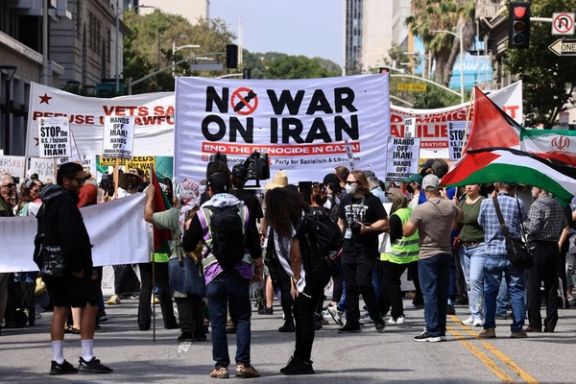
The United Nations warned on Monday that Israeli and Iranian actions may violate international law, with civilians—especially in Iran—suffering mass casualties, displacement, and widespread destruction.
The ongoing war began on June 13 with waves of Israeli airstrikes across Iran.
“Hundreds of civilians, including women and children, have been killed in the Israeli airstrikes and millions have fled major cities for fear of further attacks,” the UN Fact-Finding Mission on Iran and the UN Special Rapporteur on Iran said in an online statement, describing the Iranian population as “traumatized.”
Israel says it is targeting military objectives. However, UN experts say some of Israel’s actions appear to violate the principle of distinction under international humanitarian law, including the strike on Iran’s state broadcaster (IRIB), and the targeted killing of scientists.
At least 950 people have been killed and 3,450 injured in Israeli strikes across Iran, according to the Human Rights Activists News Agency (HRANA). The dead include 380 civilians, 253 military personnel, and 317 individuals of unknown status. Israeli attacks have hit 25 provinces, damaging homes, hospitals, and critical infrastructure.
Lack of 'effective' advance warning
The UN Human Rights Council’s Fact-Finding Mission and the Special Rapporteur on Iran have also raised concerns. Among those reported killed were residents of an apartment complex, three aid workers from the Iranian Red Crescent, and patients at a hospital in Kermanshah, according to the report. Other sites struck include a clinic for children with autism.
The UN said a lack of effective advance warning may have prevented civilians from reaching safety, raising concerns over compliance with the principles of proportionality, distinction, and precaution.
Airstrikes and evacuation orders have triggered mass displacement in Iran, with millions leaving Tehran. Limited access to shelters, fuel shortages, and disruption of essential services have increased civilian vulnerability.
Iranian counterstrikes have caused casualties and damage in Israel, with at least 24 killed and 1,217 injured, according to authorities. One missile struck a hospital in southern Israel, injuring staff and patients and forcing evacuations. Other strikes hit residential areas, prompting sirens across the country.
While many projectiles were intercepted, some got through, causing fires, power outages, and structural damage.
Internet blackout
On June 18, Iran’s Ministry of Communications imposed widespread internet restrictions, further complicating efforts by civilians to coordinate evacuations or contact family. The UN says this digital blackout has made it more difficult to assess the full scale of the humanitarian impact.
UN experts have also noted reports of arbitrary arrests of journalists, activists, social media users, and Afghan nationals accused of espionage. At least two people have reportedly been executed, and Iranian authorities have announced expedited trials, raising concerns overdue process.
Target: Evin Prison
One of the sites hit in Tehran on Monday was Evin Prison, which houses political prisoners and human rights activists, among other inmates. Iran’s judiciary said the strike damaged parts of the facility. State television broadcast footage of emergency responders carrying casualties and searching through rubble.
Israel’s defense minister said the military struck “regime targets and agencies of government repression,” including Evin.
Amnesty International condemned the attack, calling it a potential war crime, and urged Iranian authorities to release those arbitrarily detained and relocate others away from sites at risk of future strikes. The group also warned against the use of force by prison officials in response to unrest among detainees.
The UN called on Iranian authorities to relocate prisoners held near potential strike sites and urged all parties to respect international humanitarian law.
“The escalating hostilities pose grave risks to civilians across the region,” the Fact-Finding Mission and Special Rapporteur said, “with ordinary families and communities bearing the brunt of a conflict that threatens their safety, livelihoods, and daily lives.”
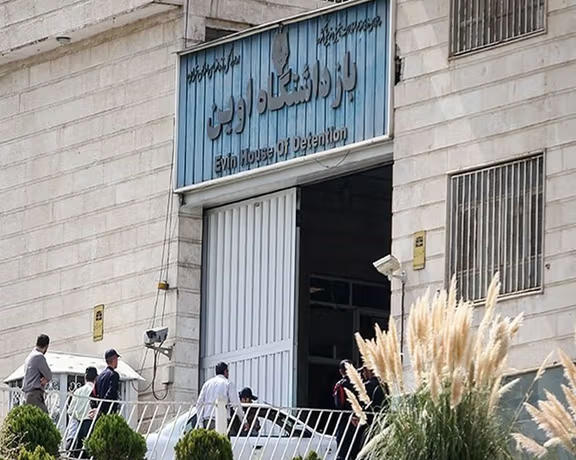
At least sixteen people including staff members at Tehran’s Evin Prison were killed on Monday after Israeli strikes hit the jail's buildings as well as other arms of the Islamic Republic’s security apparatus, according to sources familiar with the matter.
Among the dead were Vahid Heidarpour and Rouhollah Tavassoli, who oversaw wards 4, 7 and 8 at various times and were known for managing inmates accused in financial and political cases, sources said.
“They had a reputation for exploiting detainees linked to powerful networks,” a source familiar with the prison told Iran International.
The pair died in the prison’s administrative block, where they were present during the strike alongside the deputy health chief and several guards.
Some inmates were also injured by shattered glass and blast waves, though authorities have not confirmed any prisoner fatalities.
“I saw 16 prison employees in body bags being loaded into ambulances,” a witness inside the facility said. “They plan to move political detainees to Fashafuyeh or to Saheli prison in Qom. The death toll is high. No debris has been cleared yet. Many soldiers were also killed, and female staff are among the dead.”
Twenty buses transported Evin Prison inmates to Fashafuyeh prison on Monday, eyewitnesses told Iran International.
Detainees from Ward 209, who include recent protest arrestees, were moved out after the strike.
Prisoners from Ward 4 were relocated by bus to Fashafuyeh without their belongings, according to a second source who confirmed reports of gunfire inside the prison following the Israeli strike.
The families were being held back from the scene, which was taken over by Basij and plainclothes agents, the source added.
Damage was concentrated in the visitors’ hall, the infirmary, and the intelligence wing of the prison, where electricity is now limited to emergency supply and water has been cut off.
Call for prisoners' release
Families of political prisoners have repeatedly called for their release following the onset of Israeli airstrikes.
Reza Valizadeh, an American-Iranian journalist held at Evin, said in a message on June 16 that political prisoners had petitioned for conditional release, which is permitted under wartime laws passed in 1986.
The rules exclude so-called dangerous criminals but allow temporary release for others whose lives may be at risk during emergencies.
The Monday strikes, carried out under the direct orders of Israeli Prime Minister Benjamin Netanyahu and Defense Minister Israel Katz, focused on “regime targets and government repression bodies,” according to the Israeli Ministry of Defense.
Command centers of the Tharallah base, the Seyyed al-Shohada Corps, and the intelligence directorate of Iran’s police force were also struck in what Israeli officials called the most extensive operation of its kind.
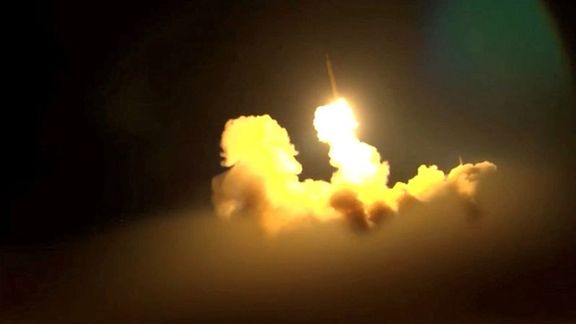
Iran has launched a direct missile attack on US forces stationed at Al Udeid Air Base in Qatar in a dangerous new escalation that followed the American airstrikes against three Iranian nuclear facilities.
Missiles were fired at the base as part of what Iran's state television is calling “Operation Herald of Victory".
Qatari air defense systems intercepted the Iranian missile attack, Al Jazeera reported, citing the Qatari defense ministry.
Doha condemned the Iranian airstrikes against US forces in Al Udeid, saying it reserves the right to respond directly and in accordance with international law.
It also confirmed that the attack resulted in no fatalities.
The US president is at the White House Situation Room, discussing a possible response to the Iranian attack, according to CNBC.
According to the New York Times and Reuters, Iran had coordinated the attack with Qatari officials and the United States in advance and gave early notice to help minimize casualties.
In a statement, Iran's Supreme National Security Council gave Doha an assurance that the targeted US base was located far from residential areas and posed no danger to “the brotherly and friendly country of Qatar and its people.”
Tehran emphasized that it remains committed to maintaining its “warm ties with Qatar.”
The situation remains fluid as US officials assess the damage and prepare for possible further retaliation. Al Udeid is the largest US military base in the Middle East, hosting thousands of American personnel and serving as a strategic hub for regional operations.